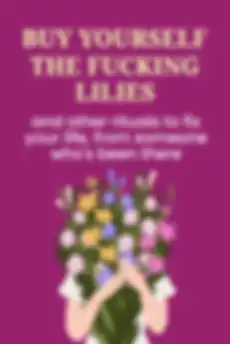No, you don't have to close yourself in your bubble at all without trying to strive for better things. However, this practice, which is widely used around the world, can be your key to happiness.
Remember your previous pain to be grateful now
Although the practice of gratitude isn't really covered in the media, many people have developed the perception that it's something stereotypical. Chances are you're visualizing a Karen-like character who, at the slightest problem, says to herself with a silly look, "I'm grateful for what I have." Well, in that case, it's worth clarifying that the practice of gratitude is much deeper than that. Some researchers believe that true gratitude is only available to those who have known real pain in life. Only someone who's been hungry can be truly grateful for satiety.

Use gratitude journaling
Your mom often told you as a child, "Do you think you have it bad? There are plenty of children in the world who really have a bad life!" Now that you're an adult, you should really try to understand your mom's logic. Now you can go beyond your experience and imagine the agony that other people go through. And therefore, you can realize your privileges.
During anxiety attacks because of your life, you can start thinking about the good things you have. Start simple: like your morning cup of coffee with your favorite scone or your daughter's drawing on the fridge. Isn't that a reason to be grateful? Add other things to it, even the simplest things. Write them down in your notebook for a daily gratitude practice so that you can revisit these notes at the most difficult moments.
Do not “jinx” it
Many people have heard that you should not say bad things, because you can “jinx”. And although in the 21st century most people don’t buy into superstitions, we still shouldn't use negative language. Saying something like “I'm such a fool” will really make your brain think you're a fool. Don’t blame the evil eye, blame cognitive psychology. Although it sounds too cliché, you must learn to use positive words toward yourself. Start your morning by looking in the mirror and saying, “I love myself,” “I can handle this.” It is especially worth doing this if you don't really believe it. Add this to a few other gratitude rituals for your morning.
Gradually, you can change how you act and the decisions you make by changing your mindset. Psychologist Carol Dweck proves this in her book Mindset — find out more in our summary of it.
Fake it till you make it
When you smile, your body automatically produces joy hormones. This means that even in the most difficult times, you can try to smile. Of course, a fake smile will never be as valuable as a genuine smile. But hey, just keep smiling. At the end of the day, your brain will believe that you are actually joyful. That's much better than just waiting to feel better on your own. Psychotherapists say that happiness is a big and difficult job. So embrace the need to smile as part of that work and practice thankfulness right now.

Appreciate your senses
Through your senses, you can experience what it means to be human. Listen to the laughter of your children, look at the sky during sunset, smell your mom's cherry pie, and dip your feet in the cold water of a creek. Still, many people in this world do not possess the same set of senses as others. But even though you may not be able to see, you can still hear music. Or conversely, not being able to hear, you can still look at rainbows. Helen Keller, who was deprived of both, nevertheless learned to be happy. She was grateful for what she had and aspired to take more: to get a college education, to become a writer, to fight for women's rights.
Develop your gratitude for resilience
Sometimes gratitude can help us in the most difficult times. A survivor of 9/11 recounted that during the crash, many strangers in the building turned to love and gratitude. They hugged, comforted, and tried to help each other. Even outside the context of disasters, gratitude can help you in more everyday life situations. Specifically, gratitude can develop your resilience. As a result, you'll be able to laugh in the face of adversity without succumbing to the tricks of fate and keep a cool head.
If you want to dive into the topic of gratitude and find ways to integrate it into your life, we recommend you read the book Thanks!: How Practicing Gratitude Can Make You Happier.
Credentials










